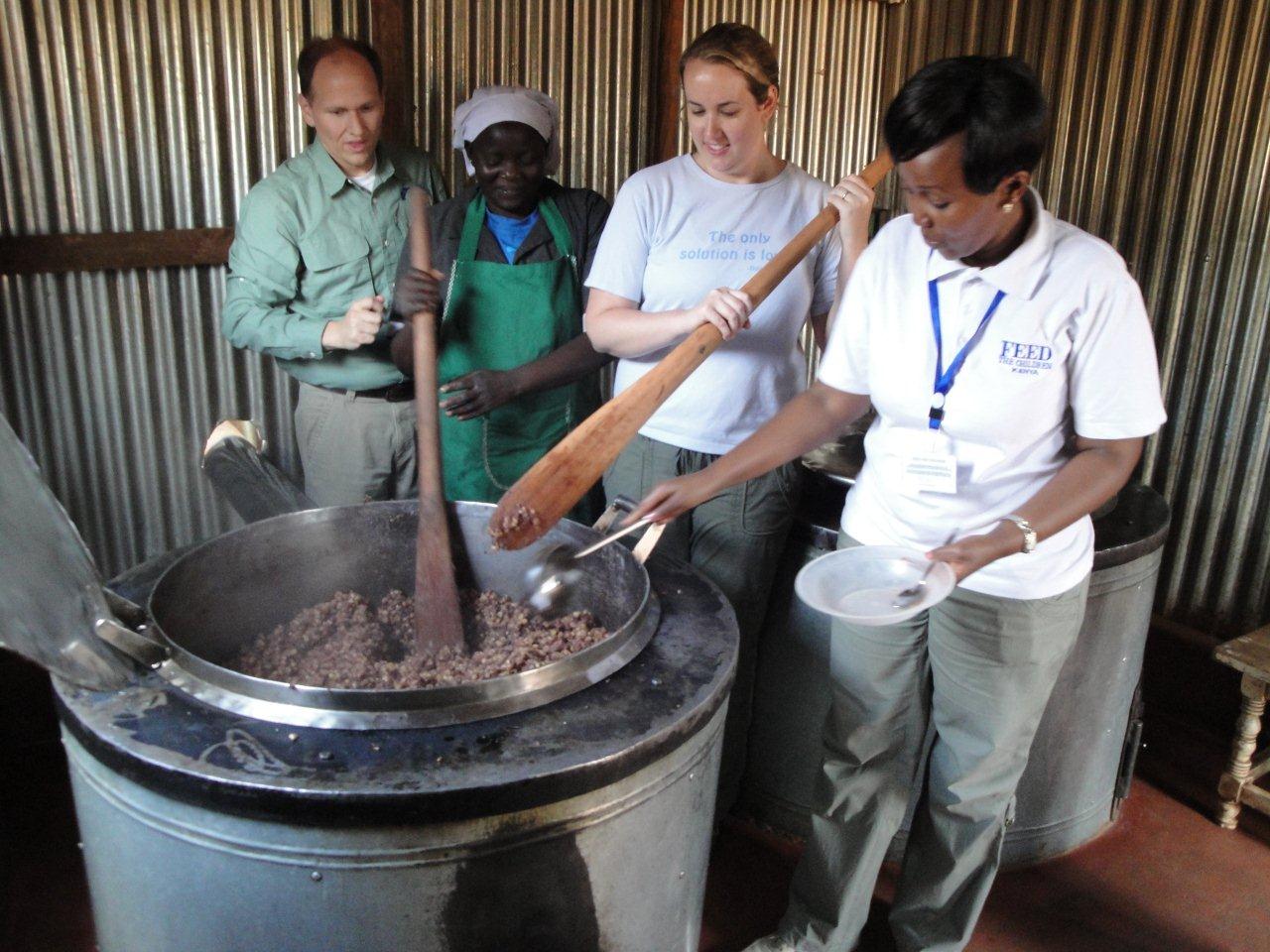 As I’ve been back in the US this week and have been processing the trip Kevin and I shared to Malawi and Kenya last week, one of the questions/ comments I've heard a lot is: “Aren’t you so glad to be back? I’m sure the poverty was heartbreaking over there. You must be so relieved to be at home again so that you can get back to 'normal' life.”
As I’ve been back in the US this week and have been processing the trip Kevin and I shared to Malawi and Kenya last week, one of the questions/ comments I've heard a lot is: “Aren’t you so glad to be back? I’m sure the poverty was heartbreaking over there. You must be so relieved to be at home again so that you can get back to 'normal' life.”
I mean no offence to any of the wonderful people in my life here, but I really do want to say "no". I haven’t been relieved to be at home. In fact, I’m grieving the passing of the experiences of last week. With many tears, Kevin and I were quite sad to leave. The work we participated in-- such as serving lunch to school children in the slums (see picture) was so special. It's the purest and most wonderful parts of this kind of work.
And while yes, there are so many perks to life in the US— water from the sink that is safe to drink, constant source of power to your home without daily interruptions, warmth and water pressure in your daily shower, well-constructed roads and city planning that makes getting from place to place easy, etc, etc—I really want to convey that being in the US is not always the end all existence. We aren't as rich as we might think.
And this is what I know: I feel our journey took us from two rich countries to come home to a poor one.
For the true be told, when we begin to life with less as Kevin and I did last week, we realize we need less. When we converse face to face, those whom we thought we came to serve become our teachers. When we relax and enjoy life, laughter springs up even in the slums.
It’s obvious what you might be thinking. All the world statistics of East Africa tell a story of scarcity of resources. Access to clean and safe drinking water is rationed - if present in some communities at all. Mothers die unnecessarily during childbirth. Fathers die too soon of preventable diseases. If children live to their 5th birthday, families are overwhelmed in amazement. The number of inequalities in this land are unfathomable. Cycles of poverty seem too strong to even imagine being broken (even if all the NGOs and government agencies actually worked together).
But, even with this true, there’s another story at work. And it’s a story not of poverty, but of abundance. As we spent time with the Malawians and the Kenyans, this is the richness I saw:
People share.
Smiles are warm and heartfelt.
Time is unhurried.
Simple pleasures like breaks for tea and coffee are honored.
Food is savored, not devoured.
Leftovers of all kinds are not put to waste.
Help given is received with overflowing gratitude.
Sitting from my position of privilege, it's not that I want to overspiritualize poverty. Rather, I want to say that in the US, I believe it is so easy to become distracted by our blessings. We not only take them for granted, but we become consumed with them to the point of forgetting from where they came. We forget the responsibility that comes from such great gifts. We forget to be people of blessing instead of just people with blessings.
As I continue to stick close to what my spiritual teachers taught me last week, I hope you’ll join me in thanksgiving for the great paradox of the gospel. The last shall be first and the first shall be last. It is more blessed to give than to receive. And, blessed are the hungry, for they will be filled.